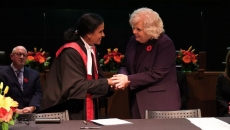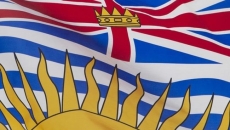OTTAWA - Statistics Canada reports that visible minorities are generally more likely than their white counterparts to earn a university degree but less likely to find a job that pays as well.
The findings published today based on data from the 2021 and 2016 censuses show that two years after graduating, visible minorities reported lower employment earnings and lower rates of unionization and pension plan coverage.
Employment income averaged $45,700 annually among racialized women with university degrees compared with $47,800 for non-racialized and non-Indigenous women; racialized men earned $51,600 compared with $54,100 for non-racialized and non-Indigenous men.
In general, the federal agency says that many racialized populations, including Koreans, Chinese, South Asians, West Asians, Japanese, Arabs and Filipinos, had levels of education well above the national average.
Considerable variations were also observed in education levels within the Latino and Black communities, since people who immigrated in 2001 or later were more likely than Canadians in general to have a bachelor's degree or postgraduate diploma.
Immigrants who arrived in the country before 2001 were less likely to possess university diplomas.






